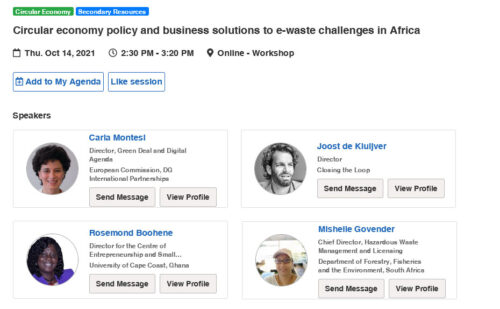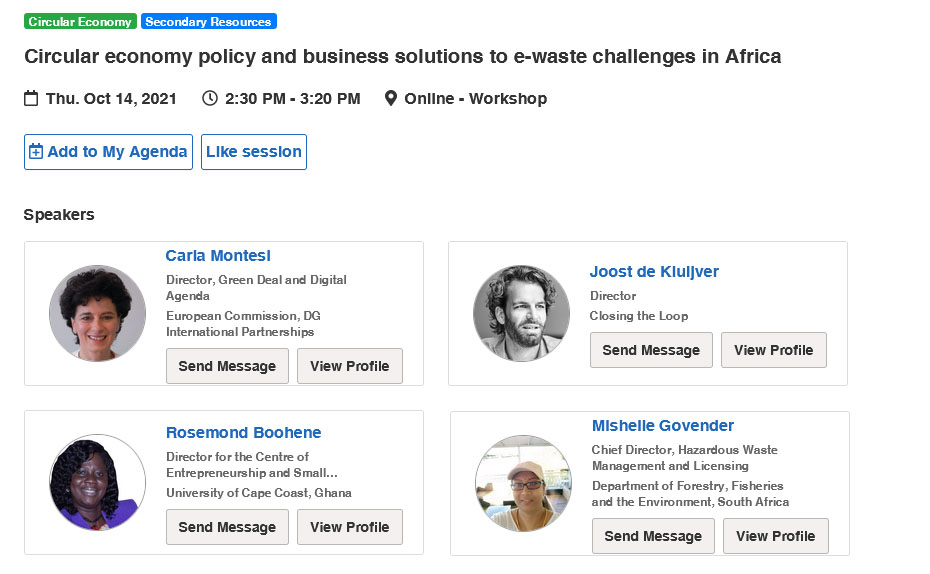At the World Resource Forum 2021, Carla Montesi, Director Green Deal and Digital Agenda of the DG International Partnerships discussed circular solutions for the electronics value chain in Africa. Carla Montesi highlighted the commitment of the EU to a clear agenda for achieving sustainability goals in key value chains like electronics and ICT. The commitment is illustrate at the policy level with the Circular Economy Action Plan and the upcoming Sustainable Product Initiative, but also at the financing and implementation levels with the European Sustainable Development Fund, with projects on the ground in partnership with African stakeholders or with global networks like GACERE.
Prof. Rosemond Boohene, coordinator of the EU-funded E-Magin Ghana project, illustrated the Africa context of the e-waste challenge. She stressed the need for inclusion of the informal sector when promoting a circular economy for electronics. Prof. Boohene reported from her project experience that awareness raising and capacity building are essential elements to enable local SMEs to treat and manage e-waste in a more environmentally sound manner.
A geographically broader perspective was given by Mishelle Govender, of South Africa’s Department of Forestry, Fisheries and the Environment, who stressed the importance of standards but also recognised that solutions to the e-waste challenge are not restricted to national borders. As a member of the African Circular Economy Alliance (ACEA), South Africa supports regional approaches for circular economy awareness in ICT, electronics and beyond.

Joost de Kluijver, Director of Closing the Loop, highlighted the opportunities of circular electronics value chains. “The market is part of the solution – that why we came up with a business model, he said. With Closing the Loop, De Kluijver implements a circular business model based on the idea of waste compensation. “We allow our customers to buy waste neutral products”, he explains. When purchasing a new electronic device, customers pay a waste-compensation fee to Closing the Loop (CTL) that CTL uses to collect and recycle an equivalent amount of electronic waste. “We need to show that reducing e-waste is economically attractive” – de Kluijver pinpoints to a driver to accelerate the circular economy.
The way forward, concluded Carla Montesi, embraces a cooperation of multiple stakeholders ranging from the informal sector, NGOs to business and legislators but also consumers and academia – as a Circular Economy cannot be developed in isolation.

